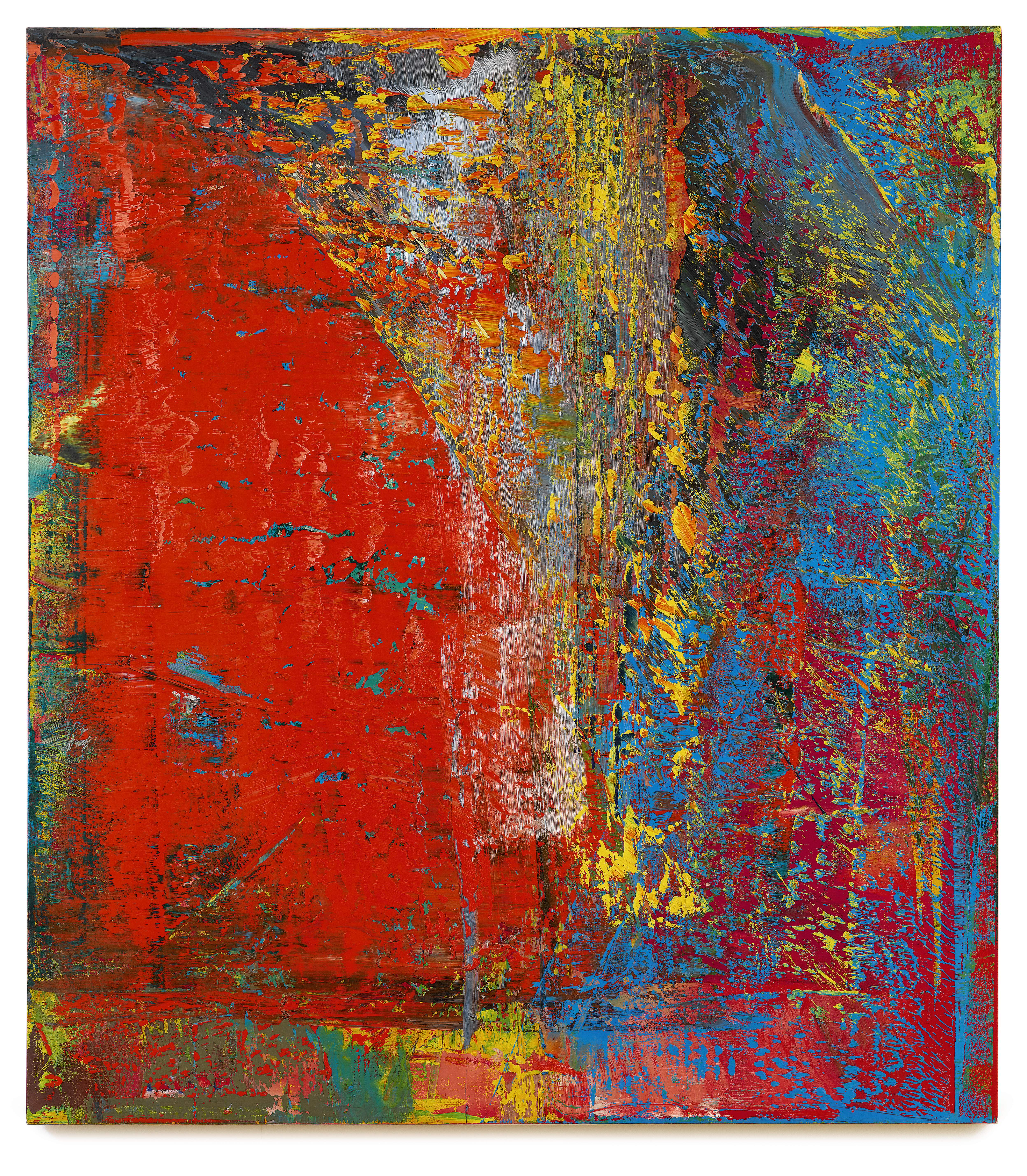
Sotheby’s New York staged a healthy sale of postwar and contemporary art on Thursday evening, totaling $276.6 million, with the night’s top price fetched by an abstract canvas from Gerhard Richter that went for $34 million. Just four out of 64 works offered failed to sell amid lively bidding in the saleroom. The total was down only slightly from that of the equivalent sale last November, which brought $295 million.
It was the final sale of a week marked by major auctions at Christie’s, Sotheby’s, and Phillips, one that testified to a resilient market in the days after Donald Trump’s shocking win of the US Presidency.
“It was a very good sale,” New York dealer Christophe van de Weghe told artnet News on his way out of the saleroom. “Tonight’s results testified to an incredibly confident market.”
The sellers of 35, or more than half, of the works on offer had been guaranteed a certain price by Sotheby’s or, in 21 cases, by a third party, before the proceedings began.
Andy Warhol, Self-Portrait (Fright Wig) (1986). Courtesy Sotheby’s.
The sale was estimated to bring in anywhere from $206 to $302 million; presale estimates are hammer prices, which do not include the house’s fees, whereas sales totals do. Thursday’s hammer total was $237.4 million.
Almost the first half of the evening—25 lots of the total 64—was made up of the collection of Steven Ames, longtime partner at investment firm Oppenheimer & Co, and his wife, Ann. Fully seven of the Ames works were by German market powerhouse painter Gerhard Richter, two of them estimated to sell for at least $20 million. Also among the Ames works were canvases by Georg Baselitz, George Condo, Glenn Ligon, and Richard Prince, as well as five works by Willem de Kooning.
The night’s top lot, Richter’s A. B., Still (1986), was guaranteed to sell and estimated to go for at least $20 million. The Ameses bought the abstract canvas, measuring over 7 feet high, at Sotheby’s New York in 1991 for just $264,000. The artist’s A B, St. James (1988), measuring eight and a half feet wide, bore the same estimate and fetched $22.7 million.
The second most expensive work of the night, Andy Warhol’s Self-Portrait (Fright Wig) (1986), tagged at $20–$30 million, has been off the market since the seller bought it at auction at Sotheby’s New York in 1997 for just $387,500. Sotheby’s Lisa Dennison snagged it for an anonymous phone bidder for $24.4 million.
Jean-Michel Basquiat, Brother’s Sausage (1983). Courtesy Sotheby’s.
Another top scorer, Jean-Michel Basquiat’s Brother’s Sausage (1983), measuring nearly 16 feet wide, was estimated to sell for at least $15 million; it juxtaposes images of the big, bad wolf, product information from a popular food brand, and an American coin. The painting comes from a heady period in the young artist’s career, marked by an Artforum article and showings at Documenta in Kassel, Germany, and the Whitney Biennial in New York. New York dealer Jose Mugrabi beat out Sotheby’s Lisa Dennison and other bidders to take it home for $18.7 million.
Guaranteed to sell, and to set a record, was David Hockney’s Woldgate Woods, 24, 25, and 26 October 2006 (2006), a landscape from the north of England. Estimated at $9—$12 million, it brought $11.7 million. It had been assured to outstrip his previous auction high of $7.9 million, set at Christie’s New York in 2009 by the painting Beverly Hills Housewife (1966–67). The 12-foot-wide, six-panel painting depicts a rural landscape in the north of England. The seller bought it just two years ago, at LA Louver Gallery, in Venice, California.
David Hockney, Woldgate Woods, 24, 25 and 26 October, 2006 (2006). Courtesy Sotheby’s.
Among the other works in the night’s top ten sales were a duo of Willem de Kooning canvases for $10.4 million and $9.8 million; yet another Richter sold for $9 million.
One of the works that found no bids conjured a certain irony in the wake of the nasty presidential campaign that had just ended. Sturtevant’s Johns Flag (1965–66), which mimics an image of the iconic Jasper Johns work, had come to auction once before, at Sotheby’s New York in 2000, when it fetched a mere $41,000. Even estimated at a modest $4 million, the Stars and Stripes failed to find a buyer.